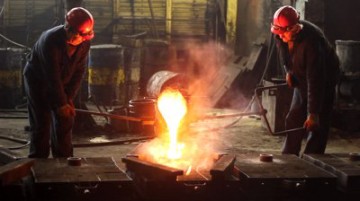 A US court has ruled that sometimes it is OK to melt your hard drive and you will not be accused of destroying evidence.
A US court has ruled that sometimes it is OK to melt your hard drive and you will not be accused of destroying evidence.
Malibu Media was carrying out a file-sharing lawsuit against an alleged file-sharer. The defendant said that the hard drive failed and it had to be replaced. Malibu Media claimed that this act alone constituted destruction of evidence and wanted victory declared and the file sharer crucified as a warning to others – or something like that.
Magistrate judge Mark Dinsmore said recommended that Malibu Media’s “Motion for Sanctions Against Defendant for the Intentional Destruction of Material Evidence” be denied.
Malibu Media, is a porn company, which is having a few of its cases stick lately, particularly its flick “Pretty Back Door Baby” which appeared on BitTorrent in 2012.
The defendant explained that the drive was taken to recycling where it would be melted down. Malibu pointed out that the Defendant received notice of this lawsuit in October 2012 through the letter from Comcast and that the hard drive that Defendant replaced in early 2013 could have, “contained evidence of Plaintiff’s copyrighted works.”
However, the court said that the porn company had failed every element of the test for proving that the evidence was destroyed before the defendant knew he was being sued.
“Sanctions for spoliation therefore may not be imposed simply because evidence was destroyed; instead, such sanctions are appropriate only if the evidence was destroyed for the purpose of hiding adverse information,” the court said.
The court noted that the defendant received notice of this lawsuit at the beginning of October 2012, but did not destroy the hard drive until “late February 2013”.
Had Defendant truly wished to hide adverse information, the Court finds it unlikely that Defendant would have waited nearly five months to destroy it. In fact, the Defendant’s continued use of the hard drive for the months after he learned of the litigation suggests that the hard drive contained no information to hide at all, or that Defendant did not intend to hide any such information.
There was also evidence that Plaintiff, however, did not serve the complaint on Harrison until April 2013, after Defendant had arranged to order the replacement hard drive, and after the recycling of Defendant’s hard drive.
The Defendant testified that the service of the complaint was the first time that he became aware that he was personally being sued for copyright infringement. At the time of the destruction in February 2013, Defendant was not even certain he had been sued, making it much less likely that he destroyed the hard drive to hide information that could prove damaging in this litigation.
The Defendant also had a receipt for the hard-drive something that he showed the court. The court felt that it was unlike he would have produced the receipt showing the purchase of the hard drive had Defendant wished to hide the purchase of the replacement hard drive.
It puts the porn company’s entire case on the back foot. Suddenly there was no evidence to suggest that the destroyed drive was involved in the alleged acts of copyright infringement and no conspiracy to destroy evidence. The court also sided with the defendant that the drive was not even used for the purposes of using BitTorrent.





